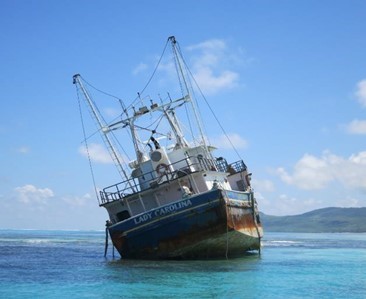RPI managed and completed federal consultations for the removal of vessels and marine debris from coastal areas in Florida, North Carolina, and the Commonwealth of the Northern Mariana Islands (CNMI) in the South Pacific (2020-2021). Our scientists coordinated with federal, state, and local agencies; grant recipients; and contractors to compile data necessary for the consultations. RPI scientists prepared correspondence letters, impacts analyses, Biological Assessments, Best Management Practices checklists, and other documentation and analysis, as needed, for consultations with the U.S. Fish and Wildlife Service (USFWS), National Marine Fisheries Service (NMFS), State Historic Preservation Offices (SHPO), and Tribal Historic Preservation Office (THPO) for impacts to threatened and endangered species listed under the Endangered Species Act (ESA), Essential Fish Habitat under the Magnuson-Stevens Act (MSA), marine mammals, and historic, cultural, and tribal resources. RPI used a Geographic Data System (GIS) for analysis of geospatial and attribute data for estuarine, riverine, aquatic, and wetland habitats (including forested wetlands, marshes, submersed aquatic vegetation, oyster beds, etc.); wildlife and fisheries species distributions, concentration sites, and sensitive areas (e.g., coral reefs and seagrasses); threatened and endangered species and critical habitats (e.g., manatees, Gulf sturgeon, sea turtles, Mariana fruit bat); natural resource management boundaries; and related human-use and socioeconomic resources (including water control structures, water intakes, etc.) associated with debris removal locations.
 The F/V Lady Carolina, grounded and derelict after Typhoon Yutu, was removed from Saipan Harbor (CNMI) in July 2021.
The F/V Lady Carolina, grounded and derelict after Typhoon Yutu, was removed from Saipan Harbor (CNMI) in July 2021.
